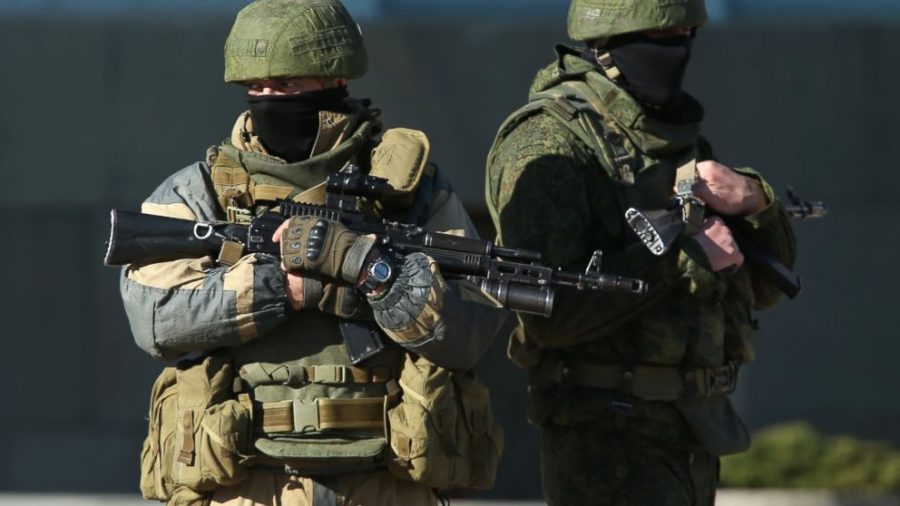Most Americans are probably aware of the current tension between the Ukraine and Russia over the Crimean peninsula; it’s kind of impossible not to have heard about it with the extensive coverage it’s receiving in the media. The particulars, however, are not so well known. Why did the conflict start in the first place? Is escalation into full war possible? What, exactly, is at stake and for whom?
The Crimean peninsula belongs to Ukraine, but it is a vital strategic asset for Russia. This fosters a sort of inherent tension in the area, because it is politically independent from Russia, but is viewed as vital to Russian interests. Further complicating matters, many Ukranian citizens of the Crimean region (non-immigrants) speak Russian, are ethnically Russian and even identify as being Russian.
The Russian-Ukranian Partition Treaty is an agreement which seeks to alleviate these tensions. Initially signed in 1997, the treaty grants Russia permission to station 25,000 troops and other military assets on the Crimean peninsula, and allows the Russian Navy to access Crimean waters and radio frequencies. Crimea is so important to Russia because it serves as one of Russia’s only deep warm-water holdings, which is strategically essential to Russian dominance of the region.
In exchange, Russia writes off $97.5 million of Ukraine’s debt, which is substantial considering Russia is one of their largest debtors. Politically, both Russia and Ukraine have something to gain from this agreement, and both parties recently agreed to extend this agreement to 2042. The trouble is, Ukraine as we know it has changed dramatically in recent months.
Russia fears for the security of its influence in Crimea in the wake of the 2014 Ukranian Revolution which ended with President Viktor Yanukovych fleeing to Russia on February 21. Nearly 100 protesters were slaughtered by the Ukranian special police in the process, and the unit was summarily dissolved once the revolution ran its course. Many officers who belonged to this unit were offered Russian passports and asylum in Russia. In fact, Russia has consistently backed the Yanukovych regime in the past, which gives them reason to fear how a new Ukranian regime will behave with respect to the Crimea, enraged by Russia’s actions.
Russia is a geopolitical superpower though, one of only three in its league: Moscow doesn’t lose too much if it loses access to Crimean land. Putin has quite a few irons in the fire in all of this—motivations beyond the obvious one of securing the safety of its ports or the official story of protecting ethnic Russians from the new government in Kiev.
By securing the Crimea, Russia would have a sort of buffer or go-between between itself and the rest of Europe, which it wants especially since it’s now largely without friends in Ukraine.
But perhaps the most valuable thing that Russia accomplishes in all of this is making NATO and the EU look weak. No matter how this crisis is resolved, there’s little possibility that NATO will come out appearing strong. Russia knows that no militarily capable country will engage it in combat unless it does something insane. Furthermore, Crimea isn’t important enough to any Western nation to be worth going to war over, so provided Russia doesn’t try to annex all of Ukraine (which they definitely won’t), no one will engage them. This could easily create the perception that the West is yielding to Russia’s show of power and is capitulating to their expansion.
But fears for ethnic Russians in Crimea are not unfounded. The emergent regime in Kiev is fervently nationalistic and seems poised to assert its power. Though it’s unlikely that matters will escalate to the genocide Russia is officially occupying the region to prevent, there is a legitimate concern for the safety of Crimean citizens at the hands of the new Ukranian government.
The unrest following Ukraine’s February revolution has brought relations to Russia to a boil. Economic sanctions by the EU and the West will likely be imposed, but it’s unlikely a real war will break out. The Ukraine may even cave to Russian pressure and sell the Crimean peninsula to them. In any case, the stage has been set for several decades of tension in Eastern Europe, and the longer this crisis lasts, the more volatile world politics will become.







































































































